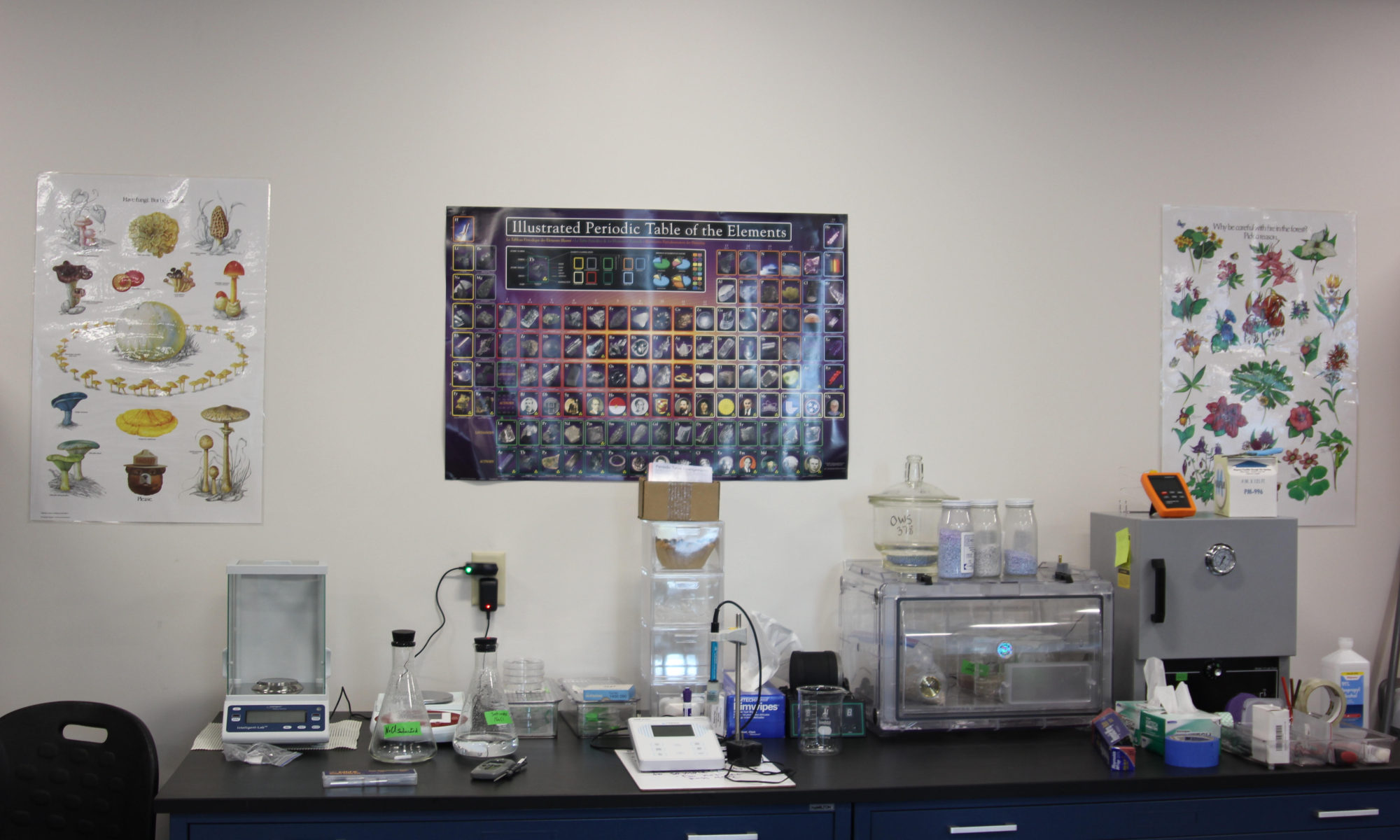
The Dougherty Family College research lab was completed in the spring of 2019. Students are now gaining hands-on experience in their biology and geology courses. (Burke Spizale/TommieMedia)
Dougherty Family College students are now able to gain hands-on experience in their biology and geology courses with a new research lab on the Minneapolis campus.
DFC completed construction of the lab last semester. Prior to the lab, professors conducted research in their classroom, outside or in a lab on the St. Paul campus.
“During my two science courses at DFC, it was really hard to understand certain topics without hands-on experiences,” said DFC alum and current St. Thomas student Xavier Abdulahi.
This semester, DFC Professor Miguel Fernandes is teaching conservation biology in the lab.
“It creates so many opportunities,” Fernandes said. “If I’m talking about population genetics, I can just pick up the equipment and show them. If I’m talking about how conservation biologists track animals, for example, in a forest, I can just pick up the GIS (Geographical Information System) and show them.”
DFC sophomore Mickey Tesfay is currently taking a geology course in the lab.
“I do believe that being able to do hands-on labs and experiments benefits my learning because I am a visual learner,” Tesfay said in a text message.
Abdulahi has continued working and gaining professional experience in the lab since he graduated from DFC last May. He is studying environmental science with a biology focus at St. Thomas now.
“I have also had the opportunity to work on a few research and skills development projects in the space and my experiences have had a positive effect on my desire to continue in the sciences,” Abdulahi said in text message.
For instance, he has been assisting Fernandes and Tim Lewis, associate vice provost for Global Learning and Strategy, on research regarding, “the filtration of sand and soil samples from around the world to identify the global presence of microplastics in our environment.”
Fernandes hopes that students gain skill development and enthusiasm for science from the lab.
“It changes the way they think about what they can do, and about their future, and it makes doing science not just an abstraction, but something concrete,” Fernades said.
Fernades said that he and his DFC colleagues are extremely thankful to donors and the university for making the lab possible.
In addition, “Dr. Lewis was also incredibly generous by giving us equipment that greatly expanded what we can do with this lab,” he said.
Burke Spizale can be reached at spiz8477@stthomas.edu.

